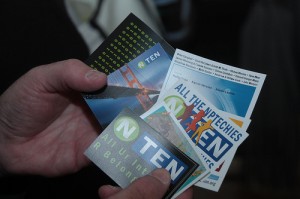Technology and Risk: Are you Gathering Dust?
Last week I had the thrill of visiting a normally closed-to-the-public Science Building at UC Berkeley, and getting a tour of the lab where they examine interstellar space dust collected from the far side of Mars. NASA spent five or six years, using some of the best minds on the planet and $300,000,000, to develop the probe that went out past Mars to zip (at 400 miles a second) through comet tails and whatever else is out there, gathering dust. The most likely result of the project was that the probe would crash into an asteroid and drift out there until it wasted away. But it didn't, and the scientists that I met on Saturday are now using these samples to learn things about our universe that are only speculative fiction today. So, what does NASA know that we don't about the benefits of taking risks?





Recent Comments